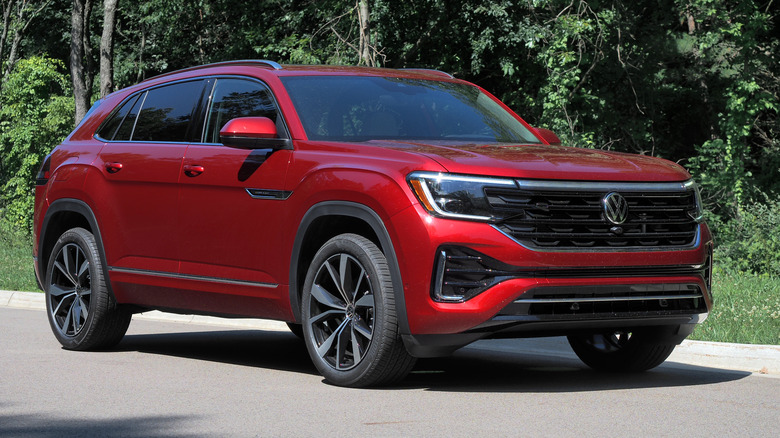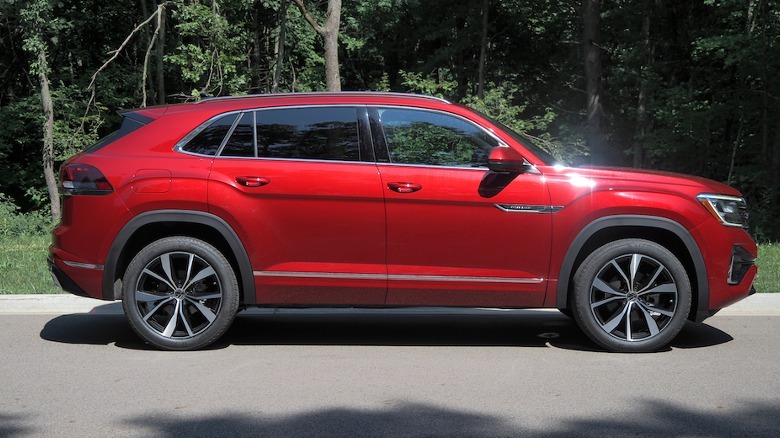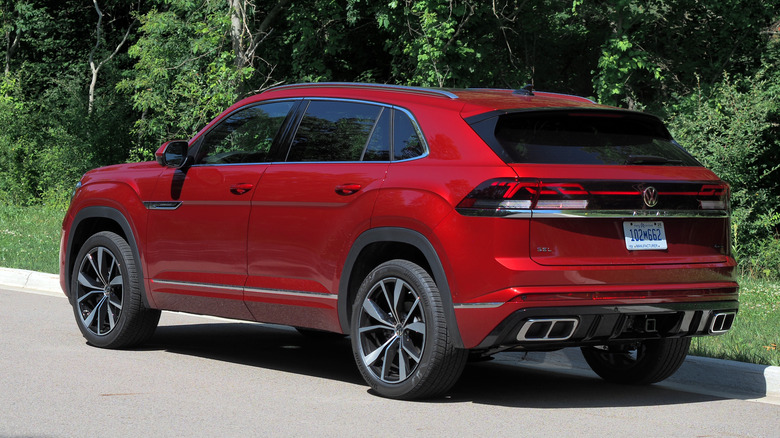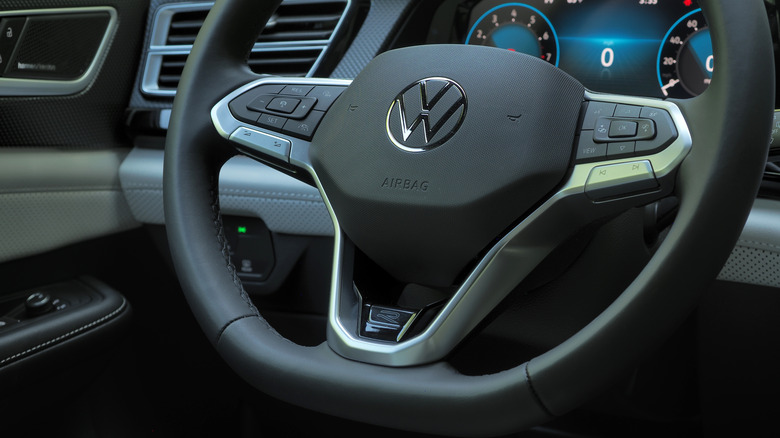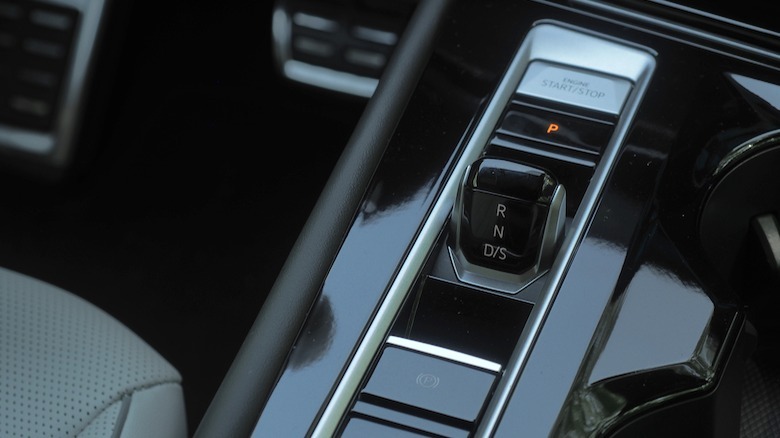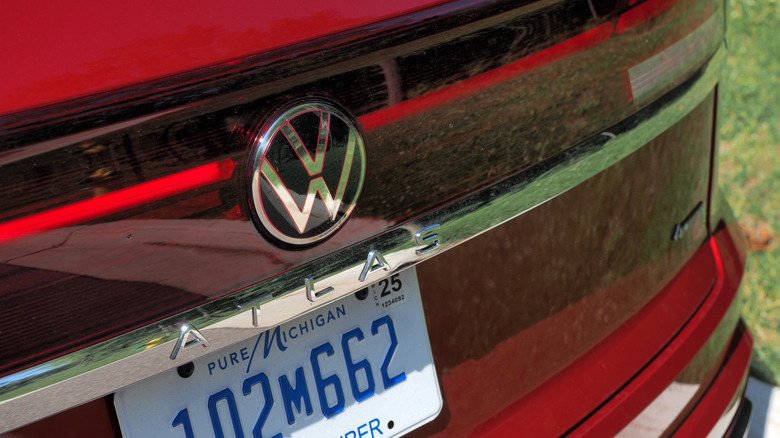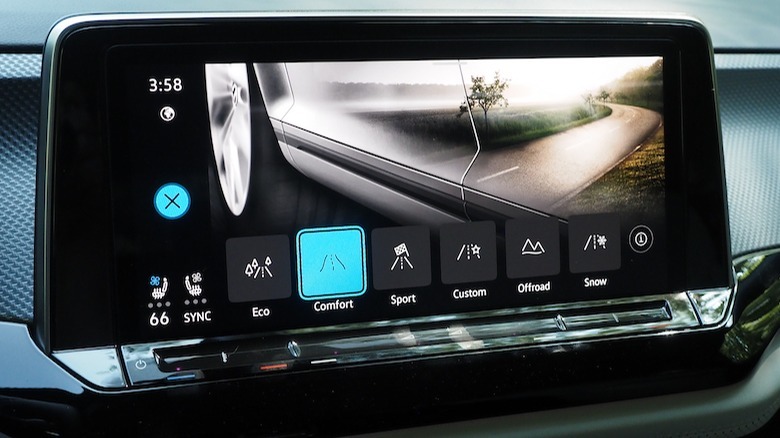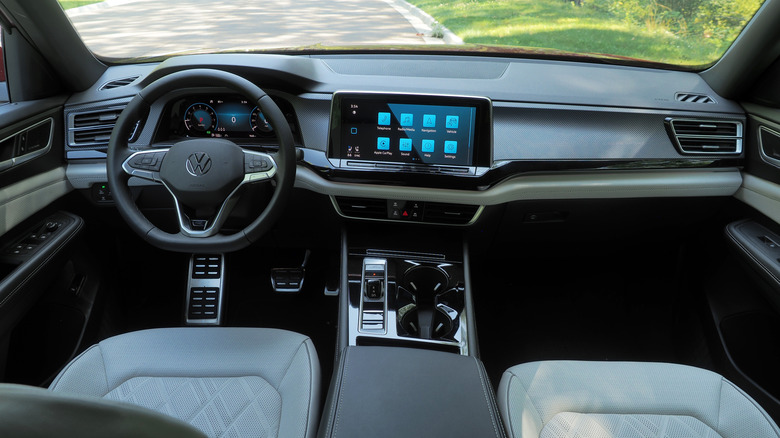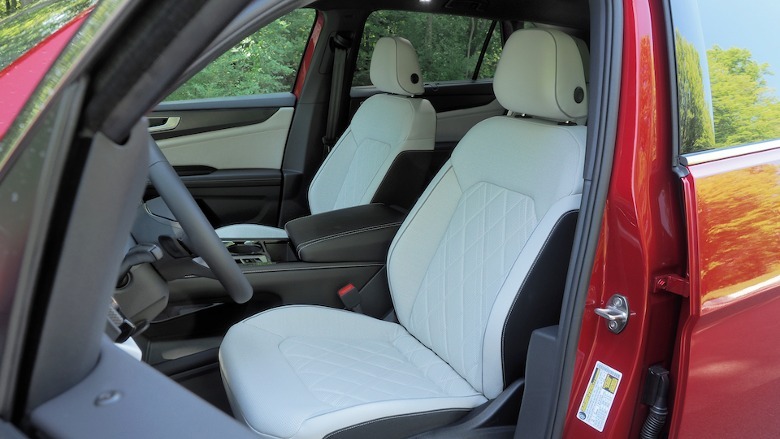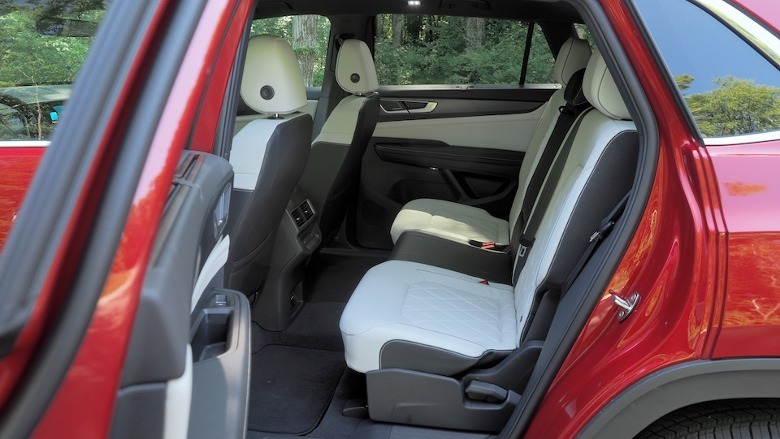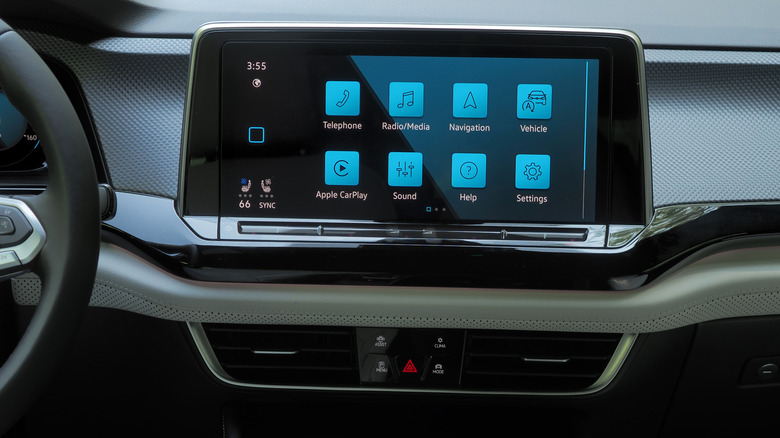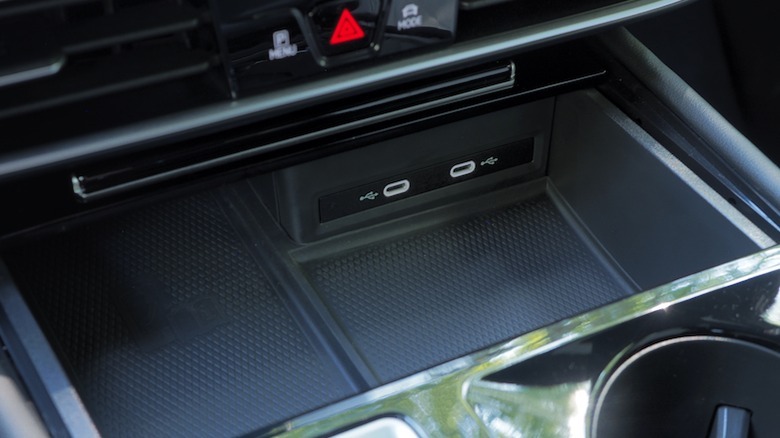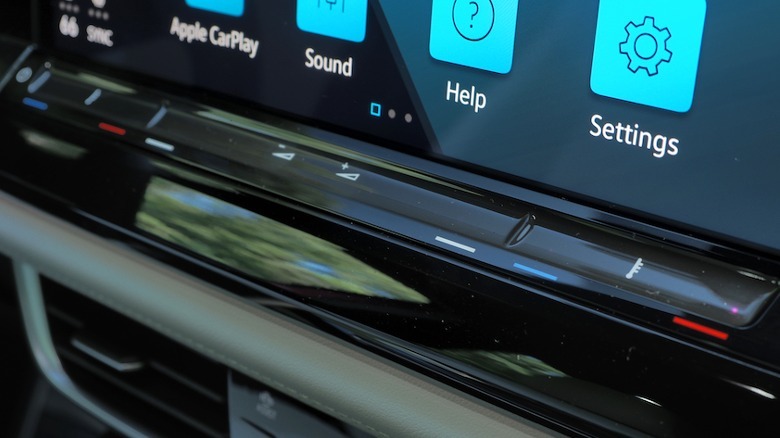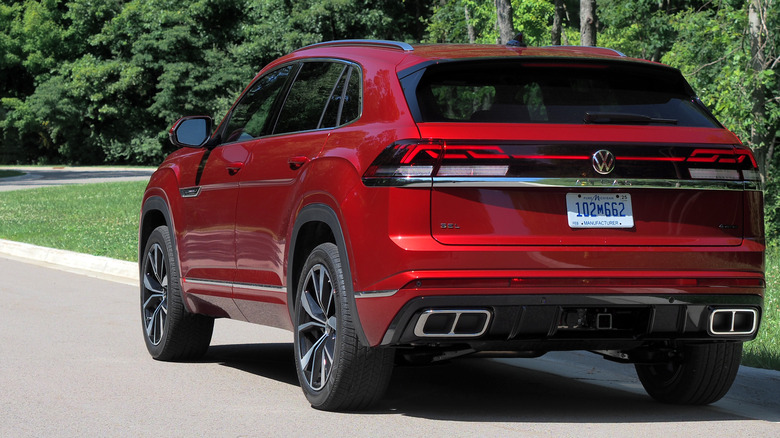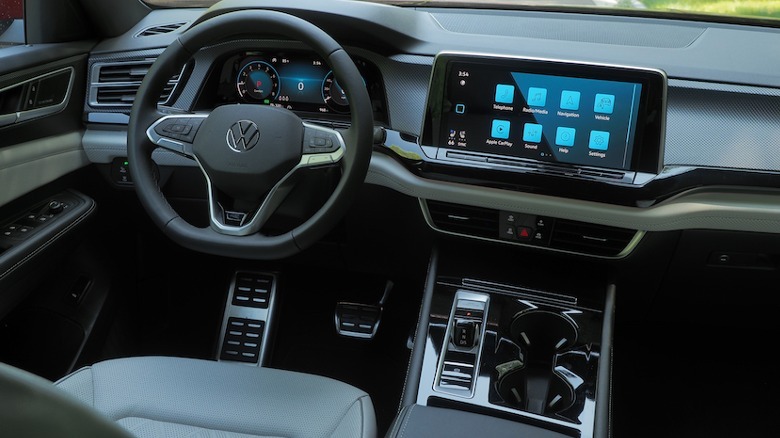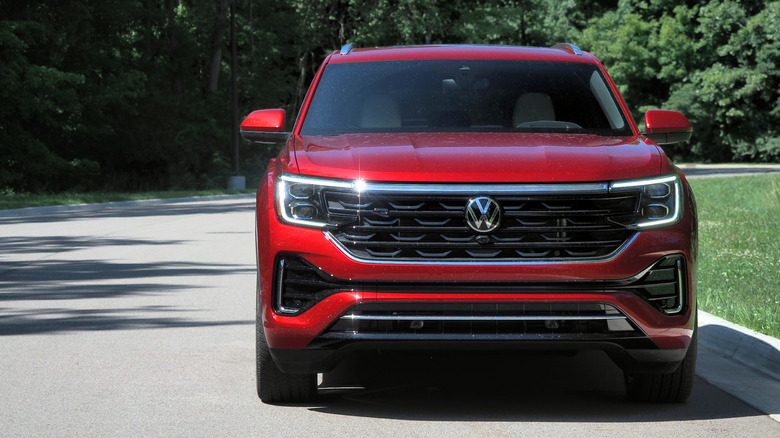2024 Volkswagen Atlas Cross Sport Review: The Problem With High Expectations
- Handsome and well-equipped
- Turbo-four engine beats old V6 on torque and economy
- Aggressive pricing
- Practicality compromise doesn't come with sportier dynamics
- Cabin switchgear is frustrating
- No electrification
You can't accuse the 2024 Volkswagen Atlas Cross Sport of lacking focus. One of the largest models in VW's North American line-up is also the most aggressively targeted, aimed directly at families hunting space, road presence, and that familiar badge but still on a strict budget.
Talk to Volkswagen about the Atlas and the Atlas Cross Sport, and you'll hear a common refrain: "Built in America, for America." It's marketing, sure, but it's also a mission statement. The two-row and three-row SUVs have been designed with the (often unique, or just plain odd) requirements of North American families in mind.
That means lots of cupholders, yes, but it also brings plenty of scale at a competitive price. These are big SUVs, and yet the 2024 Atlas kicks off at $37,725 (plus $1,350 destination) while the 2024 Atlas Cross Sport is even cheaper, from $36,715. Considering the average price for a new, non-luxury vehicle in the U.S. has hovered around $45k so far in 2023, that's a lot of family-hauler for the money.
A lot of SUV for the money
You're getting some striking SUVs for your money, Volkswagen definitely leaning into the sort of upright, burly aesthetic that most pickups have coalesced around. All but the base SE trim get a grille-spanning light bar and illuminated VW logo; LED headlamps and taillamps are standard, as are 18-inch alloy wheels.
The Atlas Cross Sport SE w/Tech trim upgrades those to 20-inch wheels (there's also a $595 black wheel package available). With the SUV's chunky proportions and sharp sculpt lines, the result is handsome and practical.
Differences between this Atlas Cross Sport and the regular Atlas are scant. The most obvious change comes at the rear, where the Cross Sport sacrifices a third row of seats in favor of a more aggressively sloping roofline. The regular Atlas also has a little extra chrome on the front and rear fascia, along with some other subtle styling tweaks.
Just the one engine
There may be a choice of body styles, but VW only has one engine option. Gone are the old four-cylinder and V6 powertrains, replaced by a 2.0-liter turbocharged inline-four with 269 horsepower and 273 lb-ft of torque. That is, the automaker points out, more torque than the V6 mustered (it offered 266 lb-ft) though ever so slightly down on horses (the V6 packed 276 hp).
Volkswagen offers the new engine in a choice of front-wheel drive or — for $1,900 more on the lower trims — 4MOTION all-wheel drive. Either way, there's an eight-speed automatic transmission.
Simplification isn't the only reason for ditching the V6, mind: economy plays a part too. With a 19 mpg city, 26 mpg highway, and 22 mpg combined EPA rating, the new 2.0-liter turbo engine is a couple of points more economical than the V6 was, despite the similarity in performance. That's without sacrificing the maximum 5,000 pounds of towing capacity.
Greener than the old V6
A V6 is nice, but there's a lot to like about the Atlas Cross Sport's new turbo mill. There's a reasonable amount of punch and acceleration is brisk enough. You don't need to feed the SUV anything above regular gas, either, savings on which could add up over time.
It's not a particularly sporty engine, despite the two-row SUV's branding. There's a Sport mode, which adds a little more heft to the steering and bumps up the engine noise, but even holding lower gears slightly longer doesn't make the Atlas Cross Sport feel particularly faster. Since there's no sort of adaptive suspension — just a MacPherson strut setup at the front and multi-link at the rear, all on coil springs and telescopic dampers — the Atlas' compliant ride doesn't tighten up, either.
Honestly, I think that's fine for the market, and VW tuning things to go firmer would've felt like a compromise. Comfort is definitely the right angle here, and while nobody is going to be picking the Atlas keys for storming backroads, it's cosseting and relaxed on long highway jaunts.
Spacious and well-equipped
The Atlas Cross Sport's cabin reflects that. With no third row to consider, the clever tumble-forward second row in the seven-seat Atlas isn't required. Instead you get decent legroom and headroom for adults in both rows, along with 40.3 cubic feet of cargo space with all seats up. Drop the second row, and that expands to 77.6 cu-ft.
Unsurprisingly, the captain's chairs option for the second row that's available for the regular Atlas can't be had, here. As standard, the 2024 Atlas Cross Sport comes with leatherette seats (with 10-way power adjustment for the driver), two-zone climate control, a heated steering wheel and front seats, and — unusual but welcome — ventilated front seats.
An optional Tech package adds a power liftgate, front and rear parking sensors, rear sunshades, and a high-mounted USB-C port for powering a dash cam. A panoramic sunroof is optional.
By the time you get to the 2024 Atlas Cross Sport SEL (from $47,435, with AWD now standard) the sunroof is standard, there's a head-up display, 30-color ambient lighting, heated rear seats, leather upholstery, and predictive adaptive cruise control. An SEL R-Line version adds specially-styled bumpers and a multifunction sport steering wheel. Finally, the 2024 Atlas Cross Sport SEL Premium R-Line (from $51,445) gets 21-inch wheels, power-folding mirrors, special R-Line exterior styling, Park Assist and a 360-degree camera, and a Harmon Kardon audio system.
Good tech, bad buttons
Standard across the board is a bevy of new dashboard tech, including a 12-inch infotainment touchscreen and a 10.25-inch driver instrumentation screen. From SE w/Tech trim up, you get six USB-C ports in total, wireless charging, 45W wired charging, and a 115W power outlet in the second row. There's also wireless Apple CarPlay and Android Auto, though Volkswagen's underlying infotainment system is reasonably easy to navigate.
The same sadly can't be said for the touch-sensitive controls for HVAC and volume that run underneath the touchscreen. The glossy black gully is a greasy fingerprint magnet, but it's also tricky to precisely control. Things only get more frustrating at night, given VW's inexplicable decision not to add backlighting to those touch-buttons. It was bad in the Golf R, and it's bad here.
Thankfully, there are at least physical volume keys on the steering wheel. That's also where you'll find some of the controls for the Atlas' IQ.Drive driver-assistance package, also standard on all trims. That includes forward collision warning, automatic emergency braking, blind spot warnings, pedestrian detection, lane-keep assistance, rear cross-traffic alerts, and adaptive cruise control with stop-and-go. SEL trim and above get predictive adaptive cruise, which can automatically adjust the set speed according to upcoming curves and other road changes.
No sign of electrification
Maybe it's asking too much for the 2024 Atlas Cross Sport to be both affordable and electrified, but it's hard not to be a little disappointed at the absence of hybridization under the SUV's hood. Unlike many other automakers, Volkswagen's line-up has a distinct split down the middle: gas on one side, full EVs on the other. The new Atlas doesn't even get a 48V mild-hybrid system to smooth out the stop-start system and coax an extra mpg point out by reclaiming otherwise wasted power.
It's a shame, not least because even a little electric shove can make big SUVs feel more enthusiastic and punchy from behind the wheel. Meanwhile, the success of plug-in hybrids like the new Mazda CX-90 demonstrates just why PHEV makes so much sense for family vehicles. The Atlas, in contrast, feels like it's clinging to an outgoing era.
If electric is a dealbreaker situation for you, patience is required. The North American-spec ID. Buzz will come in three-row form, though that's not expected to arrive on U.S. roads until sometime in 2024. VW is also planning an ID.8 three-row electric model, likely to be a more traditional shape than the Microbus-rebooted Buzz.
2024 VW Atlas Cross Sport Verdict
Electrification would undoubtedly have lifted the price tag, though, and that would've compromised one of the 2024 Atlas Cross Sport's most compelling aspects. The reality is, this family SUV segment is fiercely competitive. While the new Atlas isn't slow, doesn't lack refinement, and is hardly ill-equipped, "good" just doesn't cut it if you want to stand out in the category.
Lacking the third row of seats that the standard 2024 Atlas offers doesn't help. Despite the badge, the Atlas Cross Sport is no sports SUV, and the style gain probably isn't worth the sacrifice in practicality. Not when you're up against rivals like Kia's Telluride and Hyundai's Palisade, along with the Honda Pilot and Mazda CX-90.
The 2024 Atlas Cross Sport is undoubtedly better than the SUV it replaces. Problem is, it's neither engaging enough from behind the wheel, nor distinctive enough in its features, to eclipse its contenders. The new Atlas is good, but we may have to wait for Volkswagen's fully electric options to see something truly memorable.
